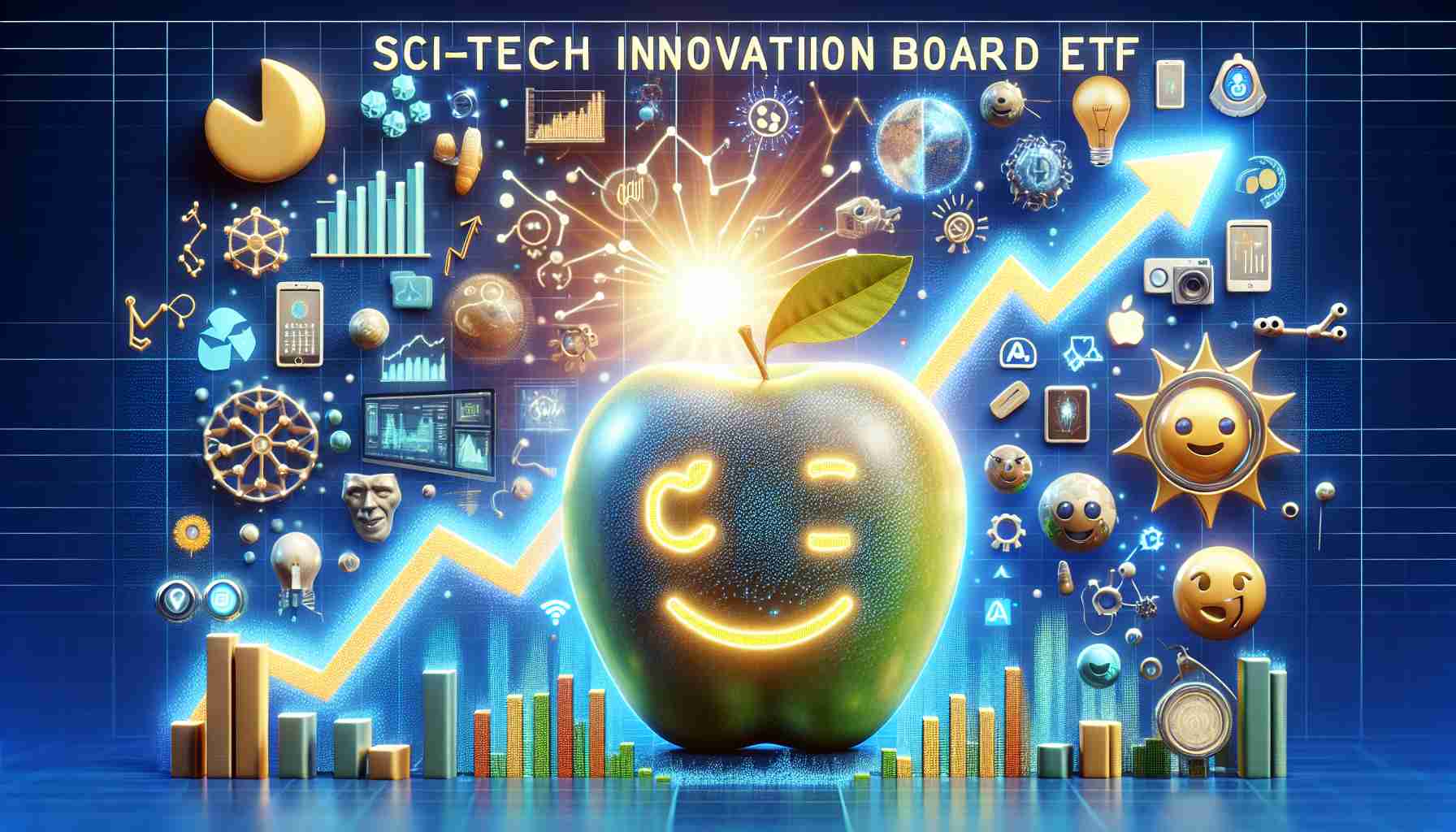Dynamic Movement in Sci-Tech Innovation Board ETF
The Sci-Tech Innovation Board ETF (Ticker: 588190) saw vibrant activity in early trading hours, appreciating by 0.38% by 10:22 am, with a turnover of approximately 44.14 million and a turnover rate of 2.54%. Several constituent stocks experienced notable increases. For instance, Zhuhai Guanyu saw an impressive jump of 6.88%, followed by Anlu Technology and AOPT Technology which climbed by 5.51% and 5.38% respectively. Additional companies such as Bozhong Precision, Nanxin Technology, Dongwei Technology, and Hengxuan Technology all soared by more than 4%.
Apple Incites Market Excitement with AI Developments
The tech giant Apple hosted its Global Developers Conference in the early hours, where they proclaimed collaboration with OpenAI to integrate ChatGPT into their services. They unveiled the “Apple Intelligence” suite, designed to enhance user interactions with artificial intelligence, including features such as prioritized notifications, text summarization, and image generation capabilities. Furthermore, Siri is set to benefit immensely from the enhanced AI capabilities. Apple also announced the launch of Vision Pro headsets in key Asian markets and released a slew of new operating systems: iOS 18, iPadOS 18, macOS 15, watchOS 11, and visionOS 2.
Market Analysts Optimistic About AI’s Role in Consumer Electronics
Industry analysts anticipate that Apple’s dedication to artificial intelligence, particularly its implementation in operating systems and the potential release of an AI-powered smartphone, could spur growth in consumer electronics. The ongoing upgrades in AI models and increased capital expenditures by cloud service providers signal a sustained demand for AI computing hardware. Artificial intelligence’s accelerated application in smartphones and PCs is expected to empower consumer electronics, stimulating innovation and generating new demands for device upgrades. Observers are consequently bullish on investment prospects within AI subsectors.
Increased Fund Flows Expected for The Sci-Tech Innovation Board ETF
With an ascending scale now boasting 22.1 billion units, which marks approximately a 9% increase from 30 days prior, the Sci-Tech Innovation Board ETF continues to expand. It strategically taps into the undervalued market segments of small and medium-sized enterprises within the Sci-Tech innovation board, focusing on six key areas and sub-industries strongly backed by national policies. Due to a market environment favoring higher valuations, this ETF is poised to attract even more investment capital and therefore remains a point of focus for investors.
Key Questions and Answers
What is the Sci-Tech Innovation Board ETF?
The Sci-Tech Innovation Board ETF is an exchange-traded fund that invests in small and medium-sized enterprises listed on the Sci-Tech Innovation Board (STAR Market), which is part of the Shanghai Stock Exchange in China. The ETF provides exposure to companies in technology and innovative sectors.
What recent developments in Apple’s AI technology were announced?
Apple announced the integration of OpenAI’s ChatGPT into their services, the unveiling of the “Apple Intelligence” suite, which includes enhanced AI-driven features for their devices, and the launch of new operating systems. Siri, their virtual assistant, and the announcement of Vision Pro headsets in key Asian markets are also part of these developments.
How might advancements in AI impact the consumer electronics industry?
AI advancements are expected to drive innovation in the consumer electronics industry by creating new demands for device upgrades and stimulating the development of AI-powered features and products, such as smartphones and PCs. This could lead to increased sales and the growth of the industry as a whole.
What are the challenges or controversies associated with Sci-Tech Innovation Board ETF investments?
Key challenges include market volatility, regulatory changes, and technology risks associated with investing in emerging tech companies. Additionally, there’s the need for investors to understand the unique risks tied to the specific sectors these companies operate in.
Advantages and Disadvantages of Sci-Tech Innovation Board ETF Surge
Advantages:
– Exposure to fast-growing tech sectors and innovative companies.
– Potential for above-average returns due to investment in emerging markets and sectors.
– Diversified investment across multiple companies, reducing individual stock risk.
Disadvantages:
– Possible volatility and market risks, especially in light of global economic uncertainty.
– Regulatory risks, as changes in government policy could affect the performance of tech companies.
– Tech sectors can be hit by rapid shifts in technology and consumer preferences which may impact investments.
Related Link
For detailed stock market information and updates, here is a link to the Stock Market main page.
Please note that the content above does not constitute investment advice. It is intended for informational purposes only, and you should always conduct your own research before making any investment decisions.
The source of the article is from the blog shakirabrasil.info
